Living in a Railcar: From Family Adventures to Heartbreak
For 25 years, Michal Banaron lived with her husband and children in a train car deep in nature. Everything changed when they had to leave. Her husband passed away, a war erupted, and the stable life they knew was upended. Yet, from the chaos, Michal found her life's purpose, and today she leads thousands of women on transformative journeys.
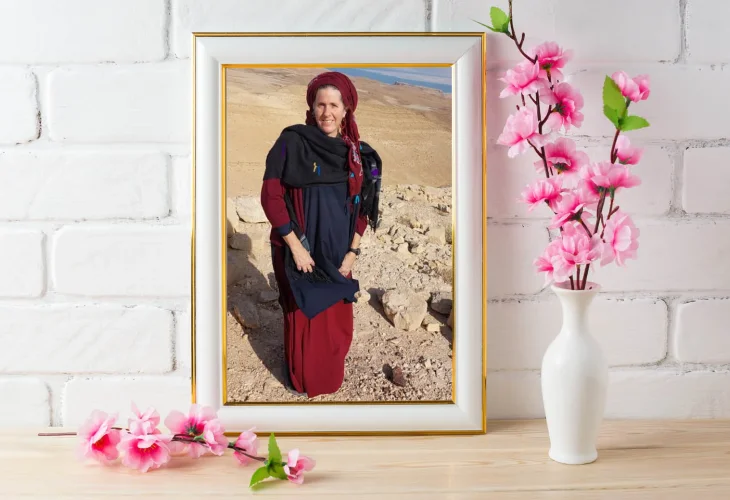 Michal Banaron
Michal BanaronWhen Michal Banaron was a young girl, she made an unusual decision she "had to leave home." Unlike typical teenage rebellious impulses, her motives were different. "I was drawn to nature," she explains, "I felt an inner calling to escape into open spaces. I grew up in an urban setting—a secular family in the city of Holon—but nature always called to me, bringing me a sense of peace that I craved."
Michal's desire and determination took her far. She soon moved to live temporarily with a farming family in Yavne'el, where she worked as a shepherd for their goat herd. Even this lifestyle left her wanting more. After reading about Bedouins in the Negev, she decided to join them. "I wanted to be part of nature, not just a guest," she explains.
Before long, Michal found herself living with a kind Bedouin tribe in the Negev desert. "I wasn't the only Jewish person there," she notes, "a Jewish family with a similar lifestyle lived nearby on an agricultural farm. They had a shelf with a Book of Psalms and Likutey Moharan texts. I leafed through them out of curiosity. I hardly understood a thing, but looking back, I realize those were the first sparks of my connection to Hashem."
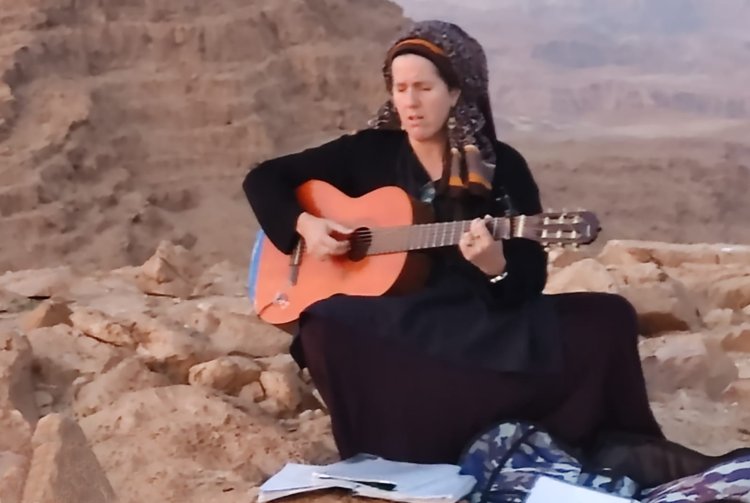
Jewish Life Among a Flock
After several years living with the Bedouins, Michal moved once more, this time to the Upper Galilee community of Kadita, renowned for its ecological lifestyle and stunning landscapes.
"In Kadita, I found another shepherd looking for help, and I offered my services," she recalls, "This time I was surrounded not only by nature but also by a spiritual presence, with the nearby tombs of sages like Rabbi Shimon bar Yochai in Meron and the righteous graves in Safed, which I often visited. Two close friends had become more observant and were attending a seminary in Safed. Visiting them felt cleansing; the environment was so pure. I was drawn to their modest clothing and decided to adopt a similar style."
"I eventually joined them at the seminary and spent four months learning what Judaism really meant and how to uphold its tenets. Although the subjects greatly intrigued me, I felt confined there. The structure was too rigid for my soul that longed for nature and freedom. Consulting with the seminary's rabbi, I explained my desire to return to nature. He understood and advised me to keep the tradition of lighting Shabbat candles and read two laws from Kitzer Shulchan Aruch daily. I agreed, and this is what I did."
Michal next settled in the Judean Hills, tending goats and honing her craft. "By that time, I was deeply into my spiritual journey," she explains, "I kept Shabbat fully and observed the commandments I knew. Those were days of intense spiritual work, filled with writing and prayer. After more than a year, I felt ready for my next step."
In her early twenties, Michal felt she was at a crossroads. "One Friday, I decided to visit my parents for Shabbat to consider my life path."
She never imagined that by the end of Shabbat, she'd be invited to a Melaveh Malka meal in Tel Aviv, where she'd meet her husband. "Reality surpasses imagination," she admits, "My husband was truly my other half, sharing a similar background and deep connection with nature. We soon decided to marry, and post-wedding, it was natural for us to move to a farm, pitch a tent above the barn, and tend to the goats daily."
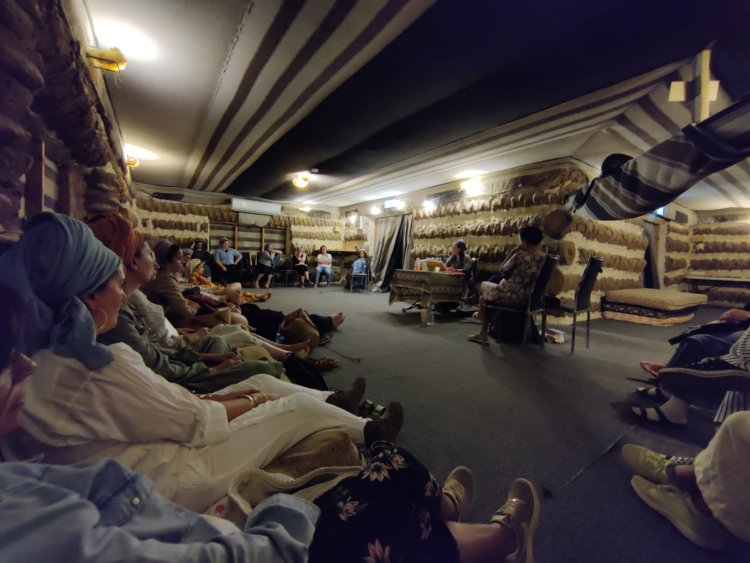
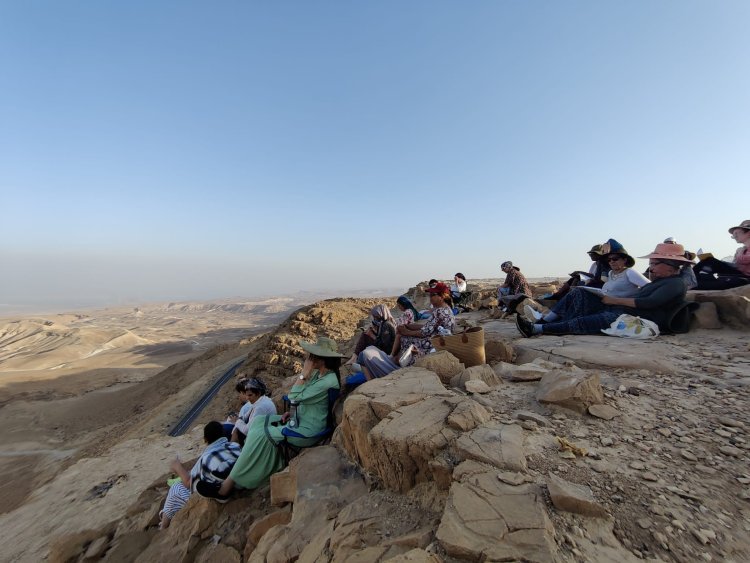
Nature is Our Home
Living in nature as a married couple brought immense joy, and their first daughter was born in that very tent. "We realized we needed to live elsewhere temporarily to offer our children more comfortable conditions," Michal explains. "We moved to a religious urban community, formalizing our return to observance. My husband studied in a kollel, and I connected more deeply with local Torah teachings. We loved our community, but we yearned for nature and felt distant from our divine purpose."
"Ultimately, we moved to a rural settlement and then back to a farm. Four years later, we returned to the beloved tent, now with three kids. We lived there for 25 years, our happiest times. We had six more children and made a home in an old train car annexed with tent sheets, in the farm's lush valley. We also set up a guest area with several tents, warmly hosting those in search of spirituality, transforming it into a haven of religious outreach."
The home attracted many, each at different life phases, making it a center of spiritual growth. Artists, writers, painters, and musicians came to create and seek inspiration."
Where did your children study during that period?
"Initially, the girls were home-schooled, and the boys attended religious schools. Later, the girls joined regular curriculums. But our children always stood out—they lived far from friends, with no electricity, drawing water from a well and playing with stones and sticks."
Do you view this as a positive or a negative?
"I acknowledge the challenges, but when I speak to them now, they unanimously agree they had a wonderful childhood filled with adventures—riding donkeys, drawing water, and shepherding goats. No one ever said, ‘I’m bored,’ and they gained a profound family bond that remains strong today."
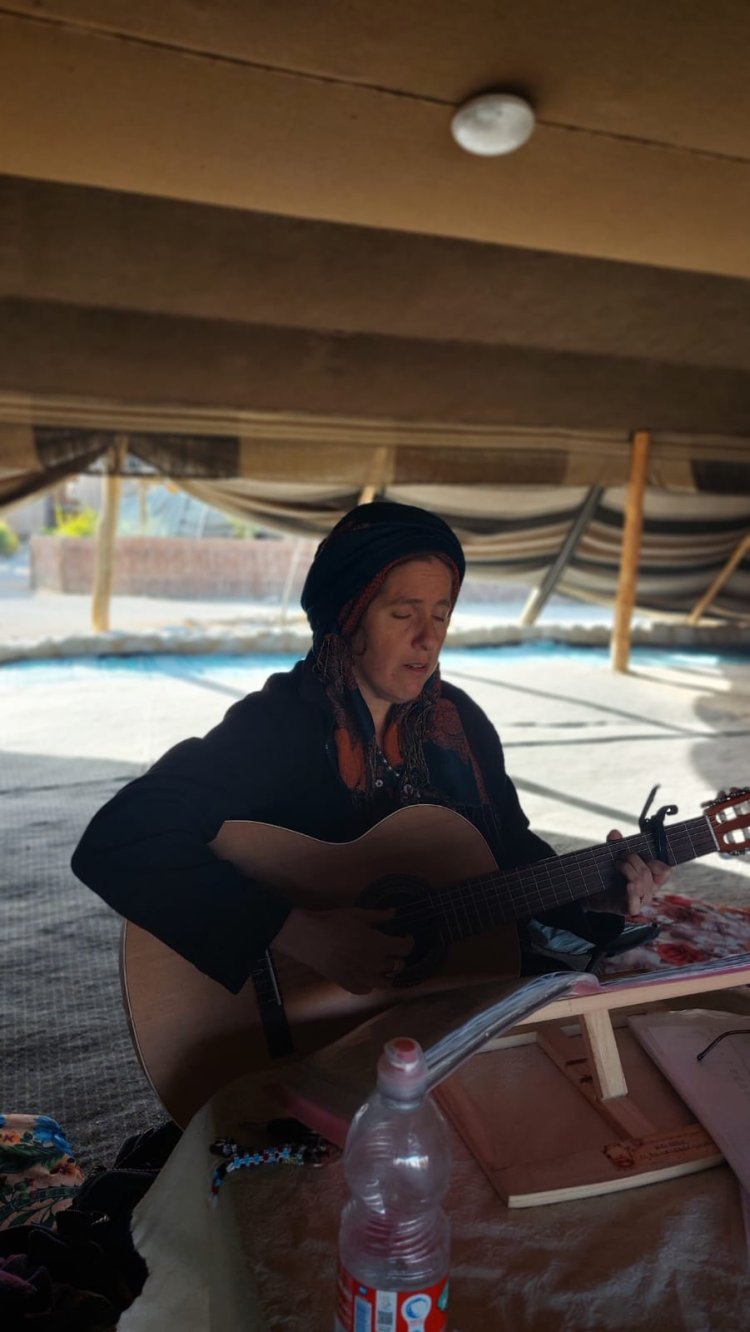
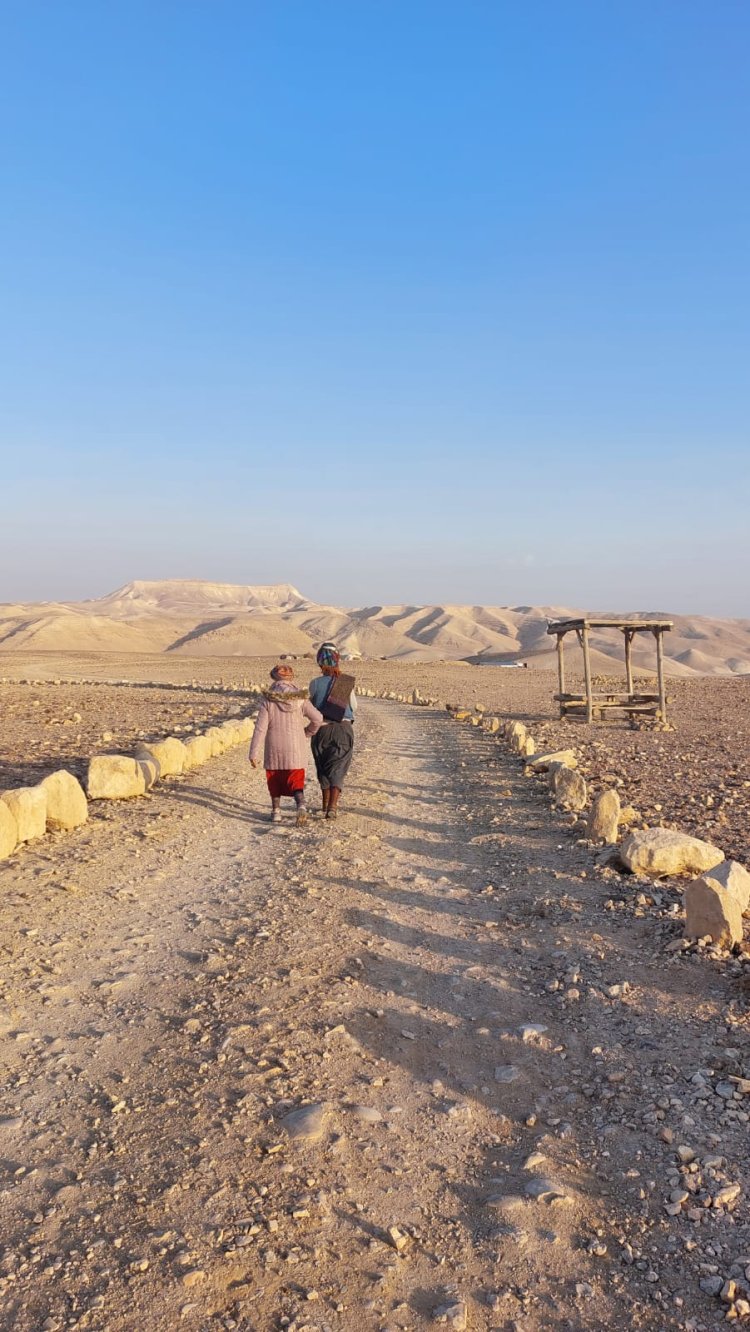
"Like the Displacement from Gush Katif"
In addition to raising her children, Michal became a teacher at a girls' seminary. "I initially laughed at the suggestion," she recalls, "'I barely went to school myself, how could I teach?' Eventually, I chose to share what I knew—how to engage with Hashem in nature. I began taking the girls outdoors to teach about the relationship between humans and creation, gathering plants, making fires, and challenging them with minimalistic hikes. Parallelly, I pursued Torah-based counseling and Jewish psychology studies."
Michal stresses that she and her husband intended to live on the farm indefinitely. Then, five years ago, a major upheaval struck. Legal issues forced the farm's owners to confront lawsuits, and consequently, they too had to leave.
"It felt akin to the evacuation from Gush Katif," she remembers with a pained expression, "Our entire world was collapsing. Life in nature, which we cherished so dearly, was behind us, and rebuilding it elsewhere felt impossible. My husband, a veteran dealing with wartime trauma, drew strength from his faith and family, but our eviction reignited his PTSD, plunging him into deep distress."
They moved to a community near Gaza in what Michal describes as a "crash landing." "There was no other way to describe it—it was a break, not a choice," she emphasizes. "My husband couldn’t handle the pain; he fell ill and passed after two and a half years. Because he was a combat trauma survivor, I am recognized as a military widow. I take this opportunity to highlight that trauma survivors are as wounded as any soldier, even if symptoms manifest over decades, as they did with my husband."
How do you keep moving forward alone?
"It's truly challenging, but from the outset, I resolved not to become a bitter, broken woman. I was determined to utilize my inner resilience to nurture happiness. Every day, I actively strive for joy and usually succeed, Baruch Hashem.
"There are intensely painful days for me and the children when my husband's absence is profound. But I endeavor to see life as a journey, not a burden. Even in adversity, I understand there is purpose here, and ultimately, it serves us."
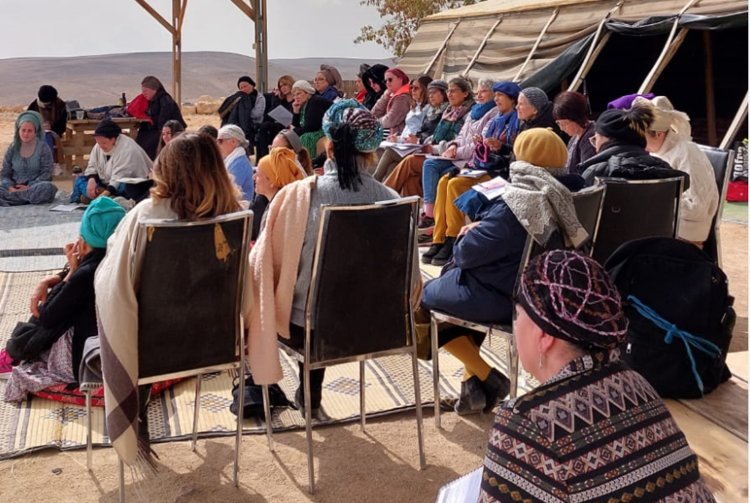
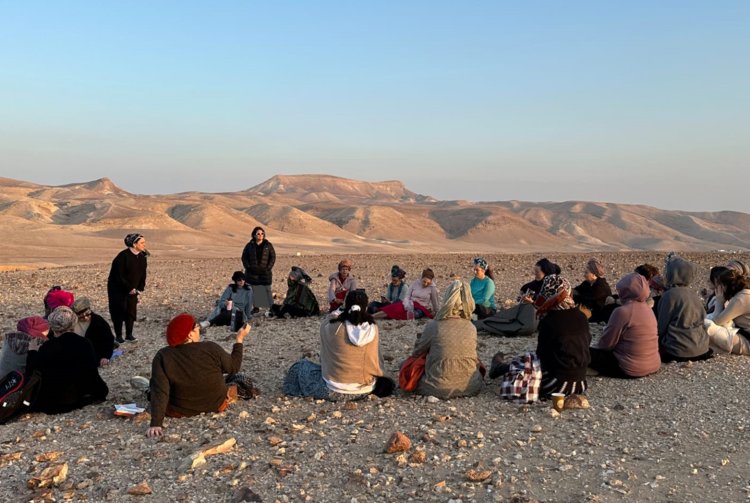
A Journey of Strength
In her resolve to keep growing, Michal has been leading workshops on Hasidic thought and engaging with Hashem. "It began on the farm," she explains, "My husband encouraged me to conduct nature workshops for women, making it his parting wish."
"I've pursued this in the past decade, and naturally, after moving, I held these journeys in the beloved desert. Today's expeditions range from short sessions to five-day experiences. Some groups are crafted, while others reach out seeking a unique adventure. Over the years, I've guided thousands of women, and it's incredibly moving to witness their empowerment from tasting such a special connection to nature."
Where do you sleep during these journeys?
"Initially, I envisioned rustic camping, but soon realized women wanted comfort. I found a stunning khan, offering excellent conditions with gourmet food and quality accommodations, all enveloped by nature's beauty."
How has the war affected these journeys?
"Living mere kilometers from the Gaza border, we initially relocated to the center. Months later, I hesitated to plan a journey, but the overwhelming response from more women than usual amazed me. In times like these, we all seek sources of strength embedded in collective journeys."
Since then, Michal continues to lead more journeys, serving women displaced from their homes for months, women who are soldiers' families, bereaved mothers, and many "ordinary" women. It’s this blend that uniquely sustains each of us, irrespective of where she resides."

